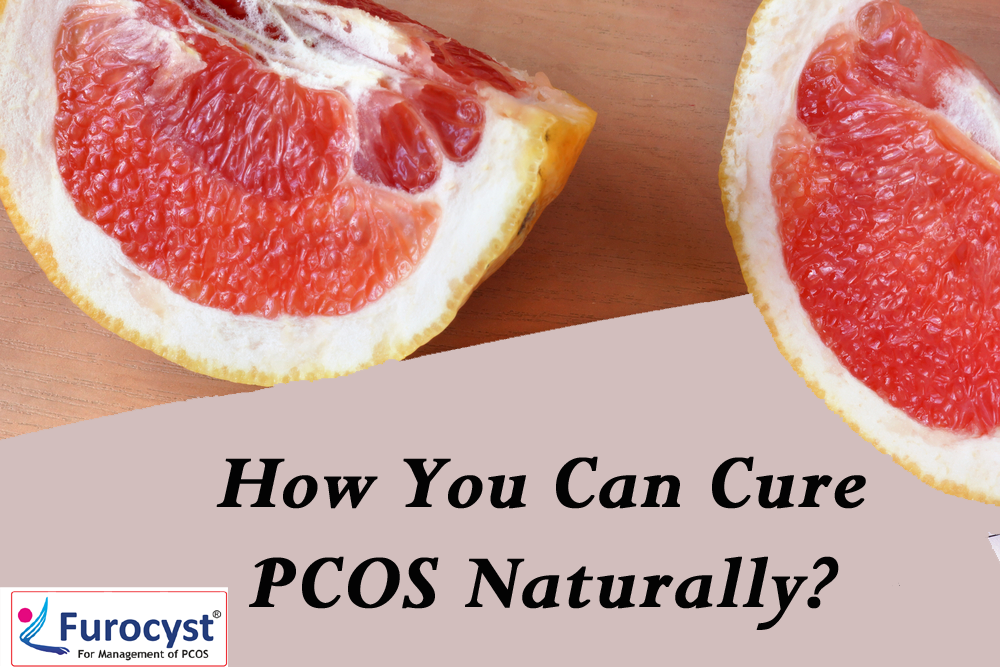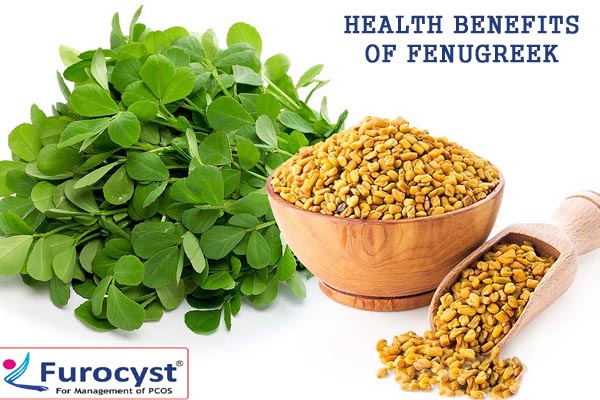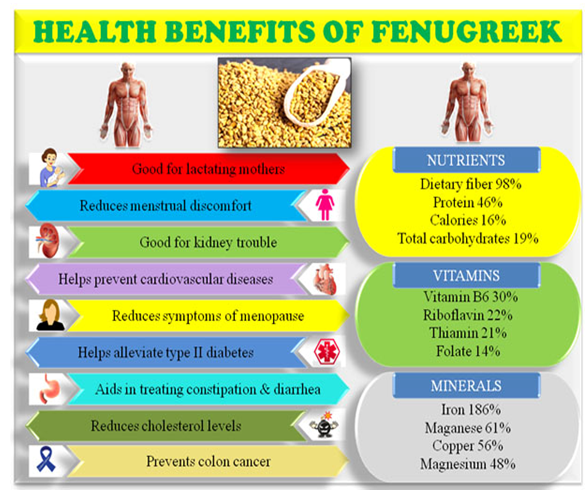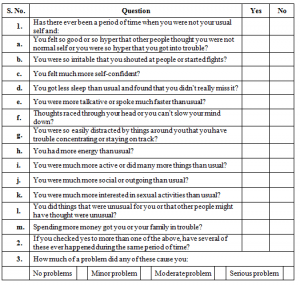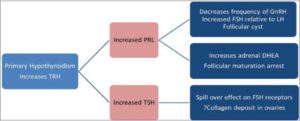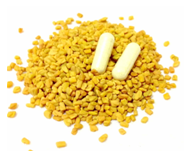How You Can Cure PCOS Naturally?
PCOS is the number one reproductive disorder diagnosed in women and affects approximately five percent in the United States. Characterized by hormonal imbalance, many symptoms include obesity, abnormal hair growth and absence of or irregular menstrual periods. Affected women may have multiple ovarian cysts and an increased risk of Type-2 diabetes and infertility. With a number of possible factors contributing to this disease including genetics, diet, environment, vitamin deficiencies, metabolic issues, and stress, there is no known cure PCOS Naturally. This can seem overwhelming at first however, there is a growing community of women who have lowered their symptoms. Cure PCOS Naturally by adopting a plant-based diet, exercising and cutting out toxins found in their day to day lives. Get on the path to healing by following these restorative tips:
Diet Overhaul

This may sound intimidating but the healing must begin with your diet. Many women are managing their symptoms or curing PCOS completely by first purging their kitchens of meat, dairy, eggs, processed foods, caffeine, alcohol, and soy. Switching to low fat, high fiber, plant-based diet that promotes weight loss and hormone balance.
Avoid Processed and Refined Foods
The preservatives and chemicals found in processed and refined foods can disrupt hormone production. These can include hot dogs, bacon, sausage, chicken, cheese, snacks, microwave or ready meals, bread, canned food, and soda.
Switch to Plant-Based

Roughly half of women with PCOS are obese and a majority suffers from rapid weight gain and difficulty losing weight. Often, losing as little as five to ten percent of body weight can restore a woman’s natural menstrual cycle. Following a low fat, high fiber, plant-based diet is the easiest way to lose weight sustainably and start healing your PCOS.
Eliminating foods high in fat and saturated fat such as meat and eggs promotes natural and sustainable weight loss that can last a lifetime. Processed meat is often packed with hormones and antibiotics that can disrupt the metabolism and hormone levels in women. Breast and ovarian cancers have linked to dairy consumption. Dr. T. Colin Campbell, Professor Emeritus of nutritional biochemistry at Cornell University and author of The China Study, found that casein. Milk is one of the most significant cancer promoters ever discovered. Cows are also injected with synthetic hormones such as recombinant bovine growth hormone (rBGH). Which increases the production of milk which can cause hormone imbalances and weight gain in humans.
A diet low in fat, high in fiber and whole grains can help reverse Type-2 diabetes, reduce body weight and address unhealthy cholesterol levels. The addition of fruits and vegetables are also excellent at managing insulin levels.
Avoid Caffeine and Alcohol

Caffeine increases your body’s normal estrogen levels which are already high in women with PCOS. This highly addictive drug blocks the absorption of magnesium, a key mineral that is essential to the colon’s regulation of normal, healthy, bowel movements. Coffee, in particular, compounds this problem by acting as a laxative, causing the bowels to move prior to the absorption of water and mineral nutrients which reinforces malnutrition and dehydration. These negative effects can disrupt digestion and metabolism leading to difficulty losing weight in the long run.
Alcohol inhibits your liver from metabolizing molecules properly. Women with PCOS already have problems filtering out excess insulin and androgen hormones which cause rampant hormonal imbalances in the body.
Avoid Soy

Goitrogens are soy contains nutrients that were Phytoestrogens. Phytoestrogens mimic the hormone estrogen, which causes Endocrine disruption in women with PCOS. Goitrogens block your Thyroid from taking in Iodine, which causes Thyroid disruption and affects various aspects of PCOS.
Supplement with Probiotics
Probiotics are important for women with PCOS but mostly overlooked. According to Nava Health and Vitality Center, “…beneficial bacteria in your digestive system have the capability of affecting your body’s vitamin and mineral absorbency, hormone regulation, digestion, vitamin production, immune response, and ability to eliminate toxins, not to mention your overall mental health”. Kefir, Kimchi, Kombucha, and probiotic supplements are great options to add to your diet.
Environmental Factors
These factors are less obvious but important to consider when discovering new ways of managing or curing your PCOS naturally.
Avoid BPA Products
BPA is an endocrine disruptor that interferes with your natural hormonal system. Studies find that women with PCOS have a higher amount of BPA in their blood, which cannot be metabolized by the liver. Avoid drinking out of cans, do not heat up foods in plastic containers (limit/eliminate all plastic products altogether if possible by using glass products), drink out BPA free water bottles, and limit/decrease using canned foods.
Start Exercising

You don’t need to start training for a marathon or be a pro athlete but 30 minutes a day for at least 5 days a week. Can make a huge difference. Not only does exercise aid in weight loss but it also restores natural hormone levels, acts as a stress reliever (reducing cortisol and the production of androgens/insulin resistance), and fights anxiety/depression.
Avoid Toxic Chemicals
These can found in everyday household products and eliminating them. It can make a big difference therefore According to a study published in the Journal of Environmental and Public health. Everyday products have endocrine-disrupting properties, including “cleaning products, air fresheners, hair dyes, cosmetics, and sunscreens”. PCOS is endocrine functioning. It is best to choose products that are as natural as possible therefore we use natural cleaning products. Eat organically whenever possible, limit deodorants/perfumes/toxic skincare products, and take your shoes off at the door before entering your home to avoid bringing in outdoor pollutants.
Conclusion
Being diagnosed with any health disorder is difficult to tolerate and PCOS can feel debilitating. However, this disorder does not have to dampen your outlook on life. Birth control is not the only way to manage your symptoms. Many women have found naturally restorative solutions that have increased their long-term health and even Cure PCOS Naturally.
Convinced the natural way is the best way? Consider adding Furocyst as a supplement to your healing journey. This product, extracted from the Fenugreek seed without using chemicals, is clinically proven safe and effective for managing PCOS and is shown to reduce the size of ovarian cysts and improve insulin sensitivity. For more information, visit our website www.furocyst.com
For more,
Call : +91 9915002390

